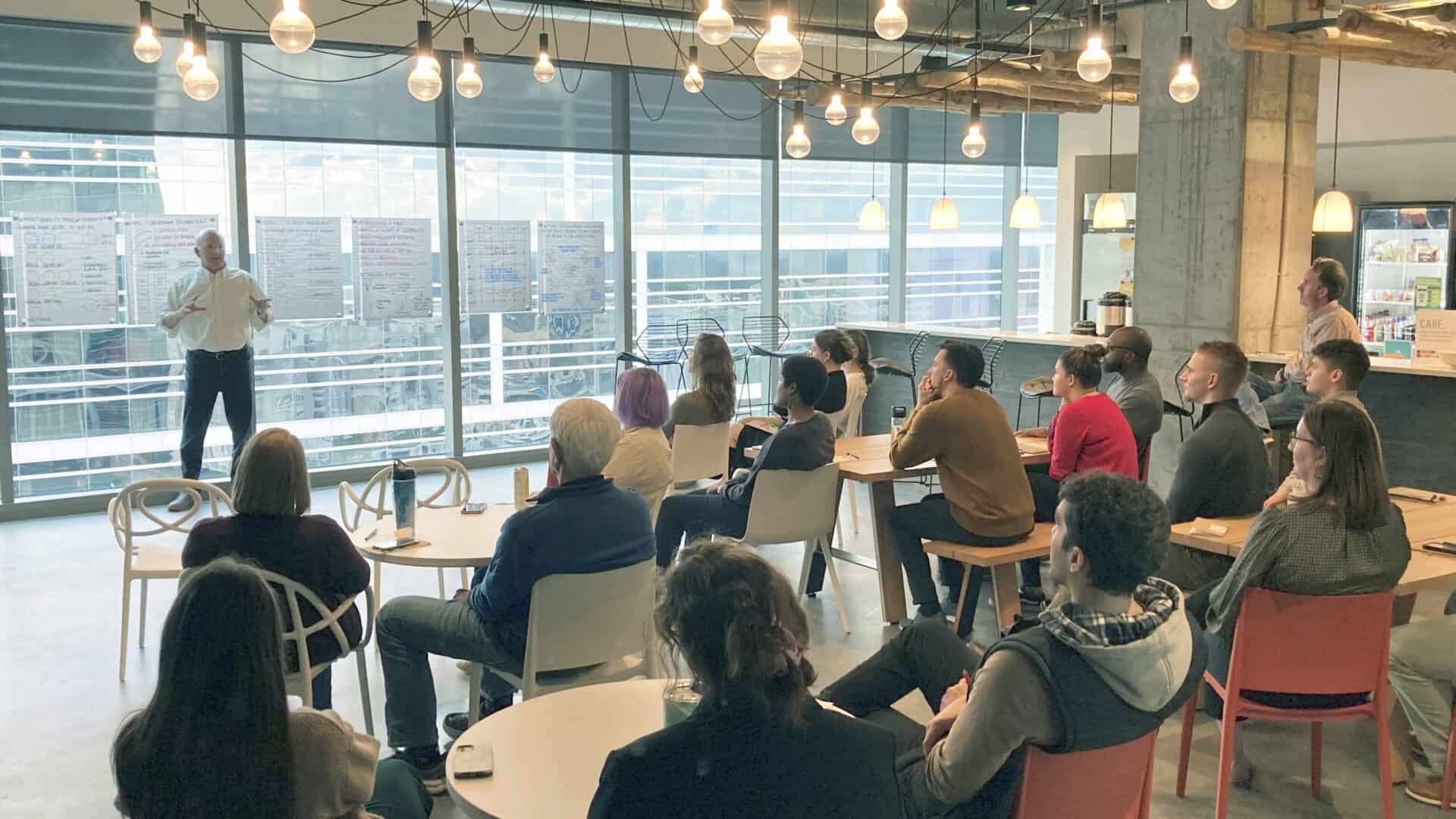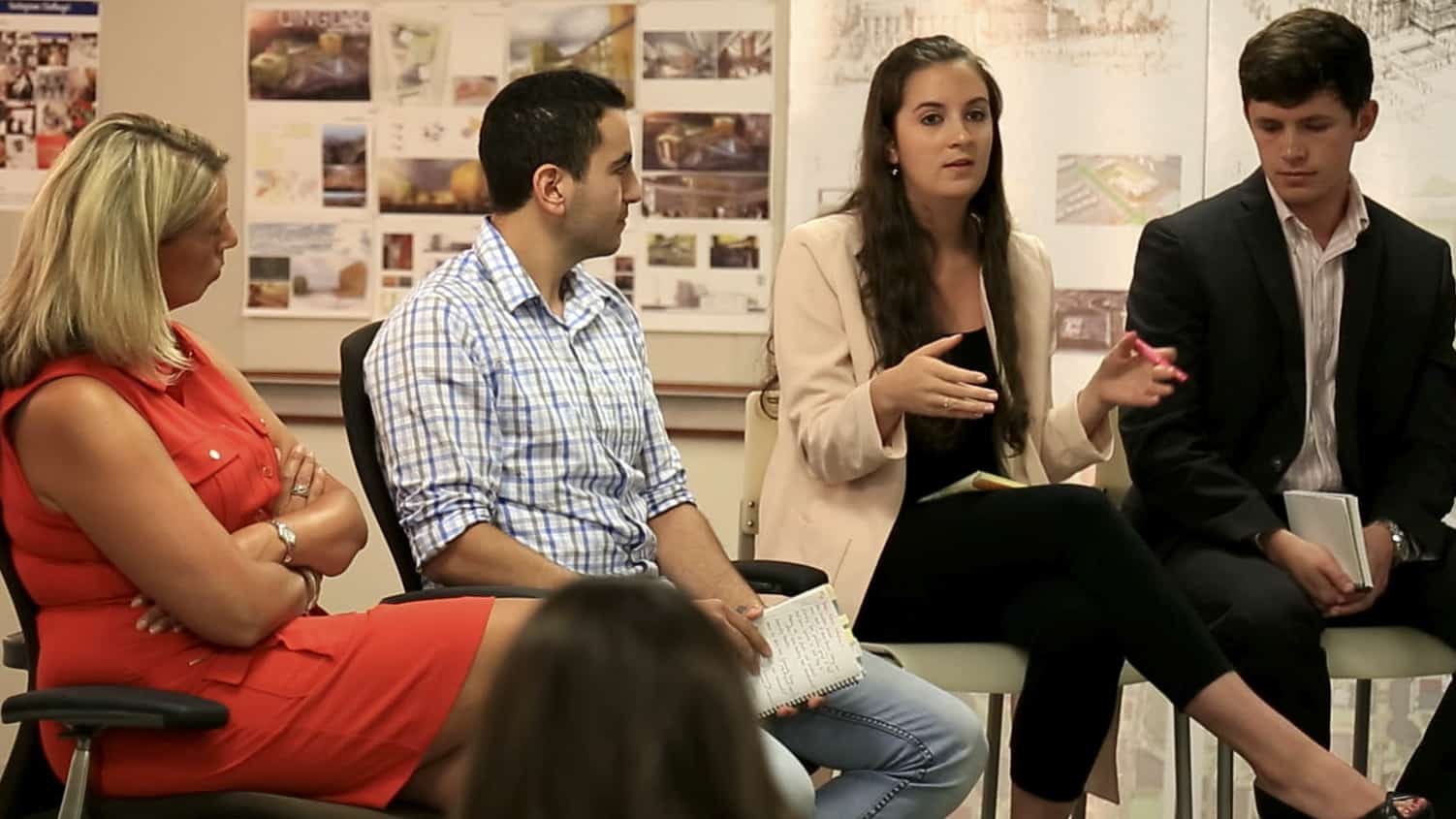At its core, mentorship supports, advises, and makes connections to help advance the career of another. It provides opportunities—for both the mentee and the mentor—to lean into different perspectives, deepen understanding, and confidently navigate career moves.
According to Forbes, 76% of people think mentors are important, but only 37% have one. Why is this? For some, engaging in a formal mentoring relationship can feel awkward. Others may feel vulnerable when asking someone to allocate time for them. Then, if you manage to find a willing partner, what next? What do you talk about when you meet? Should you create an agenda? How often do you need to meet? Mentorship suddenly feels overwhelming.
The good news is that modern-day mentoring doesn’t have to be formal or intimidating. Modern-day mentoring goes beyond the traditional one-on-one mentoring model and encompasses a variety of models and philosophies. Many of us likely already have past or present colleagues, industry peers, or others in our professional network who act as our go-tos for feedback, advice, and brainstorming.
No one mentor can help you achieve all your goals. Be open to building a network of relationships that serve different purposes—including serving in a mentor role to others. Below are some tips to get started.
WORKPLACE OR INDUSTRY ASSOCIATION MENTORSHIP PROGRAMS
Check if your workplace offers a mentorship program and learn how to get involved.
Workplace mentorship programs can increase employee retention, boost workplace satisfaction, and foster professional growth for mentees and mentors alike. And they are often easy to join!
This month Little launched a new mentoring program for employees called The Exchange. Through this firmwide effort, each office hosts curated monthly programs that bring together team members from different generations, talents, cultures, and disciplines. Each organic “exchange” is designed to encourage personal and professional development, heighten industry awareness, and promote breakthrough thinking, all of which contributes to our learning culture at Little.

REVERSE MENTORING
Broaden your view on what a mentor may look like and what you might gain.
Reverse mentoring is when a more junior employee mentors someone more senior than them. However, this relationship aims to support the skill development of both parties. More senior colleagues might learn fresh new skills and gain a new perspective on their business or industry. Simultaneously, more junior colleagues gain leadership experience and absorb knowledge from their more senior mentees.
Reverse mentoring helps reduce generational prejudice by creating an atmosphere of trust and cooperation. Additionally, research suggests that reverse mentoring positively affects employee engagement, including increased productivity, lower turnover, less stress, and decreased risk of burnout. Previously Little has sponsored a reverse mentoring panel between leaders and interns. Participants discussed the importance of workplace culture, students’ fears of entering the workforce, “must-haves” in a first job, and generational differences.

FLASH MENTORING
Identify someone with a career or skillset you admire and connect for 1-2 sessions to learn more.
All mentor relationships don’t have to be long-term commitments. Flash mentoring can be beneficial when you want to upskill quickly or gain new perspectives when exploring possible career paths or skills. Connect over coffee or plan a development session focused less on general career advice and more on quick and deep learning. Because there isn’t the pressure of a long-term commitment, asking (and accepting) a meeting is less intimidating. These relationships can often even evolve into something more long-term.

VIRTUAL MENTORING
Venture outside your office, company, or city for mentoring relationships.
Virtual mentoring expands your options for a mentoring relationship and provides greater flexibility since you can connect whenever, wherever. Look for potential relationships on LinkedIn, online mentorship platforms like MentorCruise, conferences, or other professional networking events.
During the pandemic, Little shifted its internship program to offer weekly virtual lectures to students across the country. In these sessions, industry leaders at Little shared valuable knowledge and insight into the experience of working in a design and consulting firm.
Mentorship is beneficial to any career journey. We all have something to gain—and give—professionally. By utilizing the tips above and expanding your view of the mentorship experience, you will find that initiating a mentorship relationship can be a simple yet rewarding endeavor.

